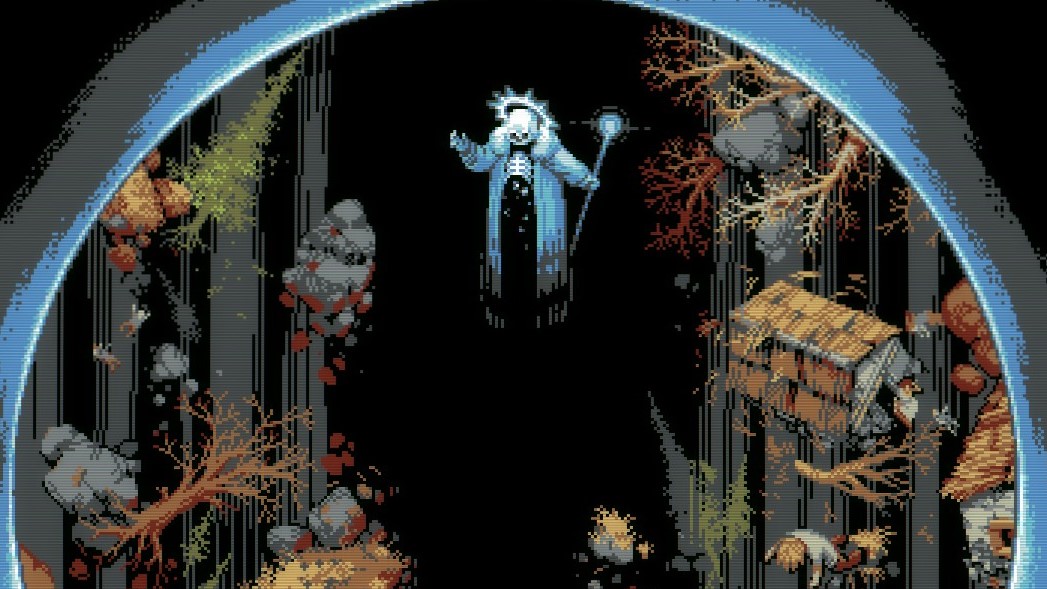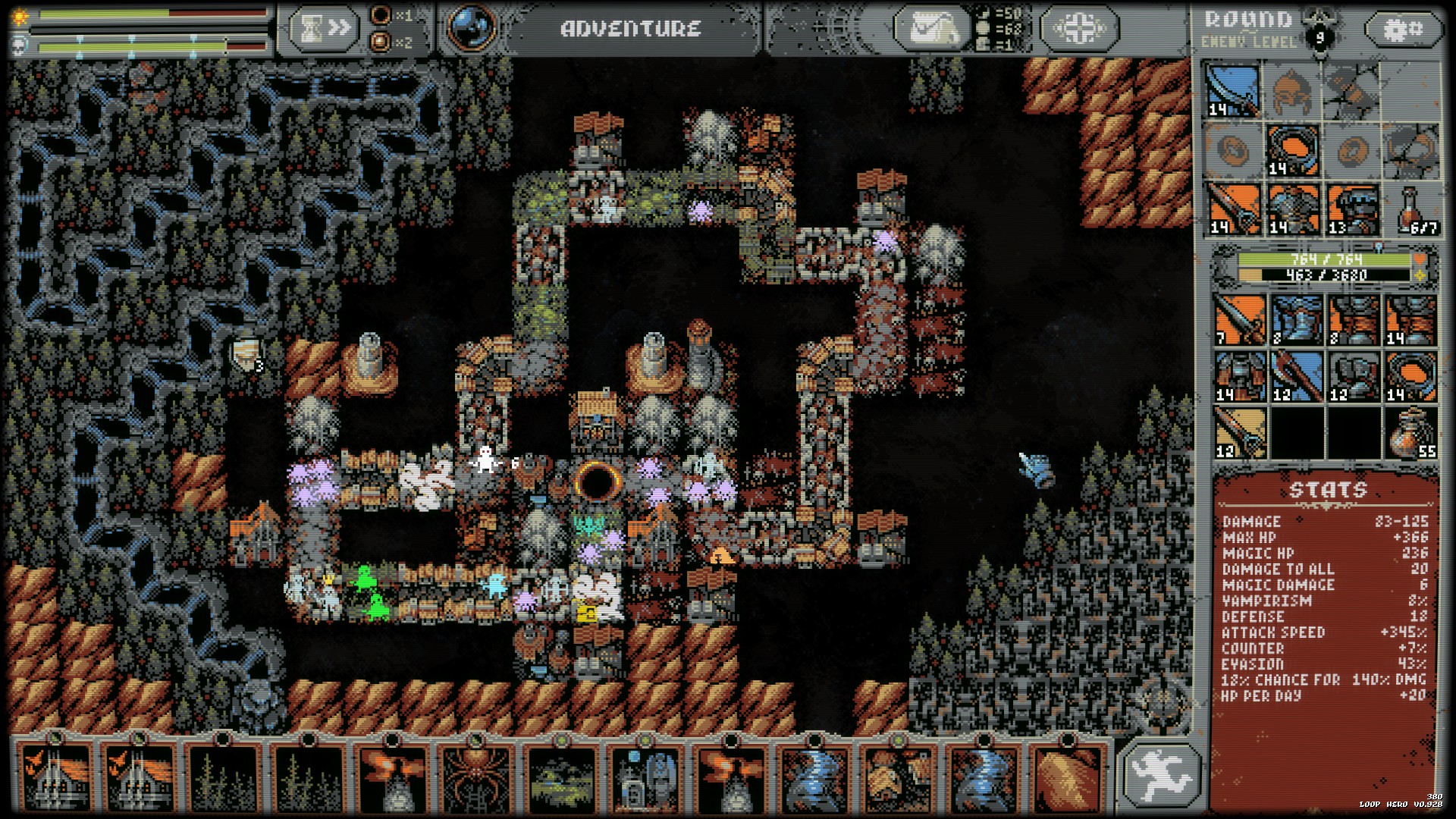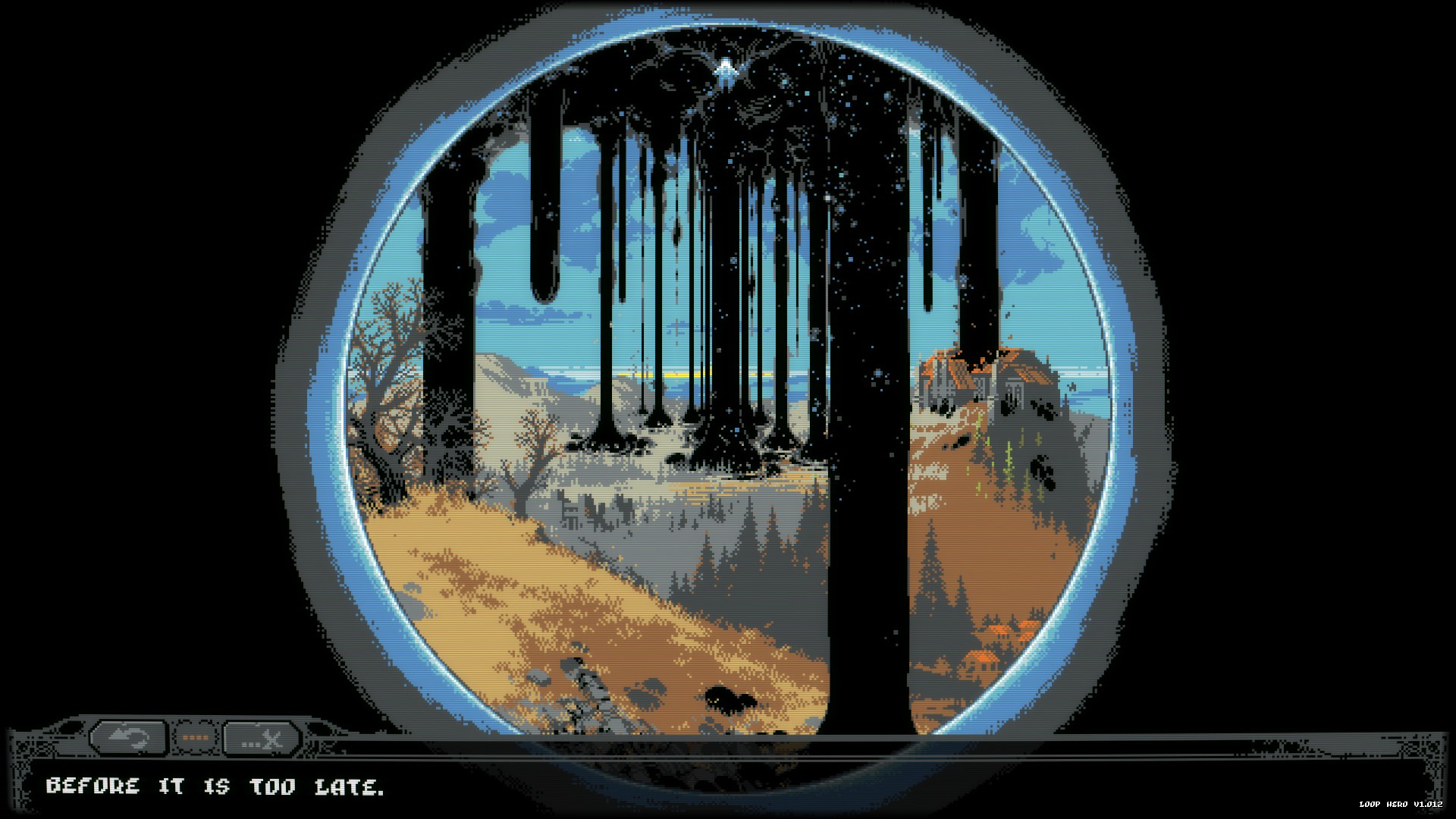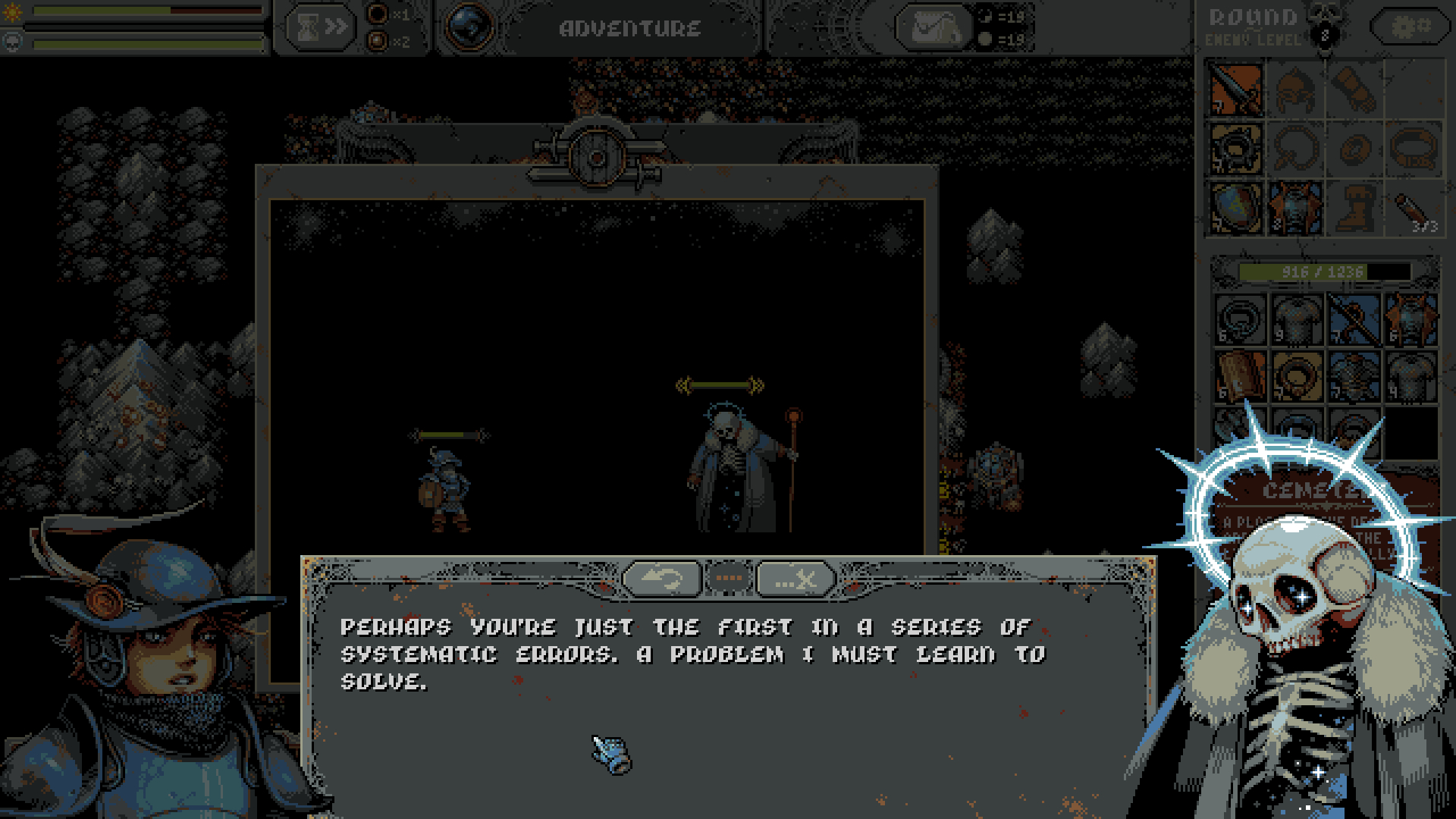Loop Hero is giving me a major god complex
Four Quarters' roguelike may be mainly hands-off, but that's its strongest feature.

Just like the other half-a-million people playing Loop Hero, I've already lost multiple evenings in the last week to Four Quarters' roguelike. Watching my little hero battle through loop after loop has left me completely mesmerised, and finding out more about how this gothic fantasy world became engulfed in a black void is an engrossing mystery.
It's difficult to pinpoint why so many players have been absorbed by Loop Hero. It's a roguelike dungeon crawler with deck-building mechanics, but also a hands-off auto battler with RPG classes and tile placement puzzle game—enough genre jargon for you? There may be a lot going on, but developer Four Quarters seamlessly fit it all together.
But, out of all its genre-bending features, its Loop Hero's hands-off approach to combat is what has really gripped me. Instead of focusing on the hero's battles, the player's attention is on creating a world around the conflict, a role that I am more than comfortable leaning into. It's the watchmaker theory of god, in game form.

I love playing as an omnipresent overseer, wringing my hands and cackling loudly as I place more threats onto the path that the hero is forever destined to walk. I'm a dungeon master who creates villages, mountains, and forests from nothing. A powerful entity that decides what dangerous endeavors my hero will face. I am a god.
Troublesome power trips aside, the player's omnipresent role in Loop Hero's is tightly woven into the game both thematically and in its gameplay. In the world of Loop Hero, the characters are in a perpetual state of disorientation after suffering from mass amnesia. The terrain cards you play inspire memories within the hero and run-ins with enemies and landscapes trigger memories of a world before it was swallowed in darkness. They provide little snippets of the past and learning more about the world before this calamity is intriguing.
I'm a dungeon master who creates villages, mountains, and forests from nothing. A powerful entity that decides what dangerous endeavors my hero will face. I am a god.
You and the hero want the same thing, to defeat the big baddie who spawns when you've put enough tiles on the board, and in chapter one, it's the Lich. With fighting out of your hands, it's your job to not only get your little hero to the end but to prepare him for the fight ahead. Placing down tiles on and around the hero's path boosts their stats, conjures more enemies, and can generate loot. You're not directly in the scrap but still indirectly affecting it.
I think Evan put it perfectly in his Loop Hero review when he says, "You can only build the level itself and hope that the machine you're piecing together is good enough to give you enough XP, resources, and gear to make you strong but not kill you outright."
Keep up to date with the most important stories and the best deals, as picked by the PC Gamer team.

This balance is at the core of dungeon building. You're always pushing your hero to the limit, spawning more enemies so that they gain XP, but too many that they'll get pummeled to a bloody pulp. It's this intricate engine of HP bonuses, loot drops, and XP encounters that will give your hero the best chances of success against the undead monster waiting at the end.
But, as I place yet another graveyard tile onto the map spawning even more skeletons, something tugs at my black, pruney heart. Placing more dangers on the board feels almost cruel. But if my hero wants to kill that evil, undead bastard then buffing him up and preparing him is the only way I can help, and that means placing more beastly tiles down for him to trawl through. It's the same way a dungeon master preps their players for the Big Bad at the end of the campaign. I shouldn't feel that bad, right?
But, there are times in Loop Hero when your balance is completely off, forcing your hero to high-tail it back to camp or dooming them in the form of a grisly death. Rebuilding your deck of terrain cards by the safety of the campfire, you're not only planning for the best strategy of attack but crafting a completely different world for your hero to experience.

Watching Loop Hero's little dude constantly run in circles can sometimes feel like I'm a powerful entity watching a mouse trapped inside a maze, but even with my omnipresent abilities, there's always something new to learn. I could discover a new tile combination, find out more information about this dark world, or come to the realisation that I may need to address my god complex. It makes Loop Hero exciting and incredibly difficult to stop playing, so, who really has the power?
- Loop Hero guide: Our top tips for the grindy deckbuilder
- Loop Hero combos: All card combination effects
- Loop Hero classes: How to optimise your build
Rachel had been bouncing around different gaming websites as a freelancer and staff writer for three years before settling at PC Gamer back in 2019. She mainly writes reviews, previews, and features, but on rare occasions will switch it up with news and guides. When she's not taking hundreds of screenshots of the latest indie darling, you can find her nurturing her parsnip empire in Stardew Valley and planning an axolotl uprising in Minecraft. She loves 'stop and smell the roses' games—her proudest gaming moment being the one time she kept her virtual potted plants alive for over a year.


